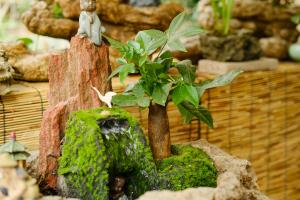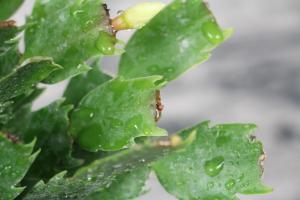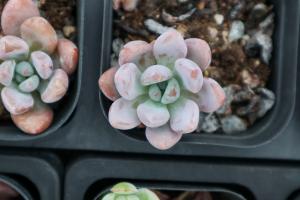Are Ladybugs Good for Your Plants?
If you're a gardener, you might have heard that ladybugs are great for your plants. But is it true? Do ladybugs really have a positive impact on plant growth and health? The answer is yes! Ladybugs are not only cute and harmless, but they also play an important role in maintaining a healthy garden ecosystem. In this article, we'll explore the benefits of ladybugs for your plants and how you can attract these beneficial insects to your garden.
How Do Ladybugs Help Plants?
One of the most important roles of ladybugs in the garden is as a natural predator. Ladybugs are voracious eaters of aphids, which are small, sap-sucking insects that can cause serious damage to plants. By eating aphids, ladybugs help to keep their populations under control and prevent them from spreading diseases to plants.
But ladybugs aren't just beneficial for controlling aphids. They also eat other harmful insects such as scale insects, mealybugs, and spider mites. By feasting on these pests, ladybugs help to maintain a natural balance in the garden and prevent plant damage.
In addition to their role as predator, ladybugs also help to pollinate plants. While they are not as effective as bees or butterflies, ladybugs do visit flowers in search of nectar and pollen. This can help to ensure good pollination and fruit set, ultimately leading to healthier and more productive plants.
How to Attract Ladybugs to Your Garden
Now that you know the benefits of ladybugs for your plants, you might be wondering how to attract them to your garden. Fortunately, it's easy! Here are some tips:
Plant flowers that ladybugs love, such as daisies, fennel, and cilantro.
Use companion planting to create a diverse garden ecosystem that attracts different types of beneficial insects.
Avoid using chemical pesticides and insecticides, as these can harm ladybugs and other beneficial insects.
Provide a source of water for ladybugs, such as a shallow dish with rocks for them to rest on.
Consider purchasing ladybugs from a garden center and releasing them in your garden. However, keep in mind that releasing too many ladybugs at once can lead to them leaving your garden in search of food elsewhere.
The Bottom Line
If you're looking for a natural and effective way to control pests and promote healthy plant growth, then ladybugs are definitely a great option. Not only are they beneficial for your garden ecosystem, but they're also easy to attract and enjoyable to watch. So why not give ladybugs a chance and see the difference they can make in your garden? Your plants will thank you!

 how many times do yo...
how many times do yo... how many planted tre...
how many planted tre... how many pine trees ...
how many pine trees ... how many pecan trees...
how many pecan trees... how many plants comp...
how many plants comp... how many plants can ...
how many plants can ... how many plants and ...
how many plants and ... how many pepper plan...
how many pepper plan...
































